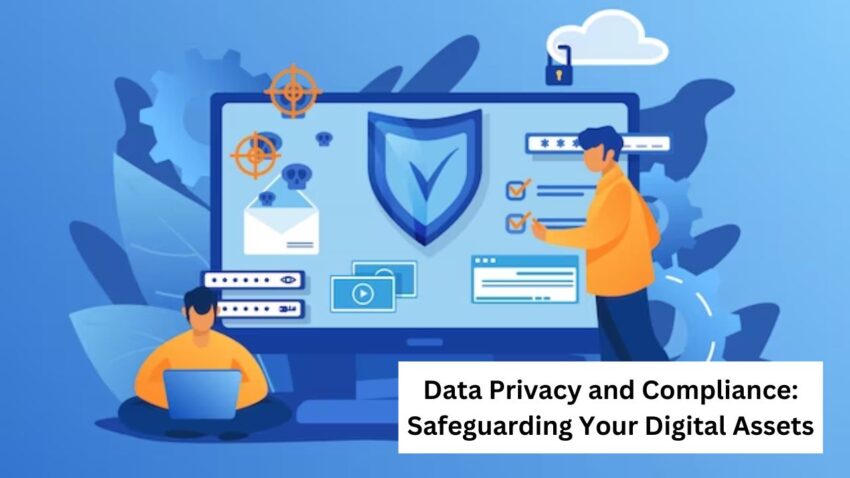Data is now essential to everyone in today’s linked world—businesses, governments, and private citizens alike and identifiers in python. As digital information has grown exponentially, worries regarding data privacy and compliance have gained prominence. Understanding the importance of safeguarding sensitive data and adhering to applicable standards is crucial in this age of data-driven decision-making. The nuances of data privacy, the significance of compliance, and methods for protecting your digital assets are all covered in detail in this essay.
Understanding Data Privacy
Data privacy refers to the protection of personal information and sensitive data from unauthorized access, disclosure, or misuse. It encompasses a range of practices and policies that dictate how organizations collect, store, process, and share data. This includes not only personal information like names, addresses, and social security numbers, but also financial records, health information, and any other data that can be linked to an individual.
Why Data Privacy Matters
- Trust and Reputation: Consumers are increasingly concerned about how their data is handled. A reputation for poor data privacy practices can lead to a loss of trust, which can be difficult to regain.
- Legal and Regulatory Compliance: Numerous jurisdictions around the world have enacted stringent data protection laws, such as the European Union’s General Data Protection Regulation (GDPR) and the California Consumer Privacy Act (CCPA). Non-compliance can result in severe penalties.
- Protection against Cyber Threats: With the rise in cyber-attacks and data breaches, safeguarding sensitive information has become crucial. A data breach can have devastating consequences for an organization’s finances, reputation, and customer trust.
- Competitive Advantage: Demonstrating a commitment to robust data privacy practices can set an organization apart from its competitors. Customers are more likely to choose businesses that prioritize their privacy.
- Ethical Responsibility: Respecting individuals’ privacy is not only a legal requirement but also an ethical imperative. It reflects a commitment to treating individuals with dignity and respect.
Data Privacy Compliance
Compliance with data privacy regulations is not optional; it is a legal obligation that businesses and organizations must meet. The following are some of the key regulations governing data privacy:
- General Data Protection Regulation (GDPR): Enforced by the European Union, the GDPR provides a framework for the collection, processing, and protection of personal data of EU residents. It grants individuals greater control over their personal information.
- California Consumer Privacy Act (CCPA): This is a landmark privacy law in the United States, providing California residents with rights over their personal information and imposing strict requirements on businesses that handle their data.
- Health Insurance Portability and Accountability Act (HIPAA): HIPAA regulates the handling of healthcare-related information in the United States. It applies to healthcare providers, insurers, and related entities.
- Children’s Online Privacy Protection Act (COPPA): This U.S. law governs the online collection of personal information from children under 13. Websites and services directed toward children must comply with COPPA.
- Personal Data Protection Act (PDPA): Enforced in Singapore, the PDPA governs the collection, use, and disclosure of personal data by organizations.
Best Practices for Data Privacy and Compliance
- Data Mapping and Classification: Understand what data you collect, where it resides, and how it’s used. Classify data based on its sensitivity and importance.
- Access Controls and Encryption: Implement strong access controls to limit who can access specific data. Use encryption to protect data both in transit and at rest.
- Data Minimization: Only collect data that is necessary for your business purposes. Avoid collecting excessive or irrelevant information.
- Privacy by Design: Integrate data protection measures from the outset of any new projects or systems. This ensures that privacy considerations are part of the foundation, not just an afterthought.
- Regular Audits and Assessments: Conduct regular assessments to ensure compliance with applicable regulations and to identify and rectify any vulnerabilities.
- Employee Training: Provide ongoing training to staff regarding practices and compliance requirements.
Conclusion
Data privacy and compliance are not just legal obligations; they are integral components of ethical and responsible business practices. Organizations that prioritize build trust with their customers, demonstrate their commitment to ethical conduct, and safeguard their reputation from potential harm. By implementing robust data protection measures and adhering to relevant regulations, businesses can navigate the digital landscape confidently and responsibly. Remember, the responsibility of safeguarding sensitive information lies


